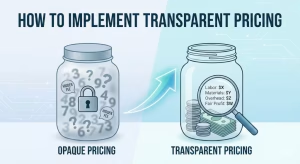In the world of online business, many entrepreneurs focus intensely on product design, marketing funnels, and social media presence. These are, without question, vital components of success. However, beneath all of these visible efforts lies a foundation that is often overlooked until it fails spectacularly. The success of an online store is not merely influenced by its hosting infrastructure; it is fundamentally tethered to it. A poor hosting choice is a silent tax on every sale, a drag on every marketing dollar spent. It manifests as slow-loading pages that drive impatient customers away, security gaps that shatter trust, and catastrophic crashes during the very sales events a business counts on most, like Black Friday.
This is not a simple choice to be delegated or made hastily based on price alone. Making a financially disciplined and technically sound decision about your e-commerce hosting is one of the most impactful investments you can make in your business’s future. The purpose of this guide is to provide a clear, analytical framework for that decision. We will deconstruct the essential types of e-commerce hosting, define the critical criteria for evaluating them, analyze the specific needs of different e-commerce platforms, and look ahead to the significant role artificial intelligence will play in the future of this digital foundation.
What is E-commerce Hosting? (And How It Differs from Standard Web Hosting)
To understand what e-commerce hosting is, it helps to first think about what a normal website does. A simple blog or a company’s informational website is like a digital brochure. People visit, read text, and look at pictures. The website’s job is to show the same information to everyone. Standard web hosting is built for this job. It’s good at serving up pages that don’t change much.
An e-commerce website is a completely different kind of machine. It’s not a brochure; it’s a dynamic, interactive store.
Think about everything that happens when you shop online. You browse different product categories. You filter products by size, color, or price. You add items to a shopping cart that is unique to you. You log into your personal account. Finally, you enter your credit card information and check out. Every one of these actions requires the website to do something. It has to check inventory, run calculations, connect to a payment company, and save your order. This requires a lot more power and a lot more security than just showing a simple webpage.
That’s the key difference. E-commerce hosting is a specialized service built to handle the demanding, complex jobs of an online store. Here’s a breakdown of what makes it special:
- Security: This is the most important difference. When you take a credit card payment, you are handling sensitive financial information. E-commerce hosting must follow a strict set of security rules called the Payment Card Industry Data Security Standard (PCI DSS). If your hosting isn’t PCI compliant, you are not allowed to process credit card payments directly. Good e-commerce hosts also include things like strong firewalls to block hackers and free SSL certificates. An SSL certificate is what puts the little padlock icon next to your website address in a browser, encrypting the data sent between your customer and your store to keep it safe from thieves.
- Performance: All those actions—searching, filtering, adding to a cart—use a lot of server power. Think of a server as the computer where your website lives. E-commerce hosts provide you with more processing power (CPU) and memory (RAM) so that your website can handle many customers shopping at the same time without slowing down to a crawl. If your site is slow, especially at checkout, customers will simply give up and leave.
- Databases: Your online store’s information—products, prices, customer names, orders, inventory levels—is all kept in a database. An e-commerce site is constantly reading from and writing to this database. E-commerce hosting is designed to make this process incredibly fast and efficient. Standard hosting often has slower database capabilities that can’t keep up with the demands of a busy store.
- Software Support: E-commerce platforms like WooCommerce (which is a plugin for WordPress) or Magento have specific needs. A good e-commerce host knows exactly how to set up the server to make these platforms run their best, which saves you a lot of headaches.
In short, choosing standard web hosting for an online store is like trying to haul commercial cargo in a family sedan. It might work for a very short trip with a tiny load, but it’s not the right tool for the job and is bound to break down when you need it most. E-commerce hosting is the heavy-duty, armored truck built specifically for the valuable job of running your business.
The Primary Types of E-commerce Hosting Platforms

When you start looking for e-commerce hosting, you’ll see several different types offered. It can be confusing, but the differences are important. Choosing the right type depends on your budget, your technical skill, and the size of your business. Let’s use a housing analogy to make it simple.
Shared Hosting
- What it is: Shared hosting is the cheapest and most common type of hosting. With shared hosting, your website is on a large server that you share with hundreds, sometimes thousands, of other websites.
- The Analogy: Think of this as renting a room in a giant apartment building. You have your own small space, but you share everything else—the building’s water supply, electricity, and security.
- Pros: It’s extremely affordable, often just a few dollars a month to start. It’s also very easy for beginners because the hosting company handles all the technical server management.
- Cons: The biggest problem is the “noisy neighbor” effect. If another website on your shared server suddenly gets a huge amount of traffic (maybe they went viral on social media), it can use up all the server’s resources, causing your website to slow down or even crash. You have very little control, and security can be a concern because if one website on the server gets hacked, it could potentially affect others.
- Ideal Use Case: Honestly, shared hosting is not recommended for any serious e-commerce store. It might be okay for a brand-new blog or a personal website, but the risk of slow performance and downtime is too high when your income depends on your site being available.
Virtual Private Server (VPS) Hosting
- What it is: A VPS is a step up. You are still sharing a single physical server with other users, but the hosting company uses special software to divide that server into several separate “virtual” servers. Each virtual server acts like its own independent machine.
- The Analogy: This is like owning a townhouse or a condo. You are still part of a larger building structure, but you have your own dedicated walls, your own front door, and your own utilities. What your neighbors do doesn’t directly affect your power or water supply.
- Pros: You get a guaranteed amount of resources (RAM, CPU power) that is not shared with anyone else, which makes your site’s performance much more stable and predictable. It’s more secure than shared hosting and gives you much more control to install your own software.
- Cons: It costs more than shared hosting. It also can require more technical knowledge to manage, unless you get a “Managed VPS” plan where the hosting company takes care of the technical side for you.
- Ideal Use Case: A VPS is an excellent starting point for most small to medium-sized e-commerce businesses. It provides the stable performance needed to handle customers and sales without the high cost of a dedicated server.
Dedicated Server Hosting
- What it is: With a dedicated server, you are renting an entire physical server for your website alone. All of its resources belong to you and you alone.
- The Analogy: This is like owning your own single-family house. You have complete control over the entire property. You can paint it any color you want, build an extension, and you never have to worry about neighbors making noise.
- Pros: This option gives you the absolute best performance, security, and control. You can customize it exactly to your needs and handle enormous amounts of traffic without any slowdowns.
- Cons: It is the most expensive option by far, often costing hundreds of dollars per month. You are also fully responsible for managing the entire server, which requires a high level of technical expertise (or hiring someone who has it).
- Ideal Use Case: Dedicated servers are for large, established e-commerce businesses and enterprises that have very high traffic, process thousands of transactions, and have an IT team to manage the server.
Cloud Hosting
- What it is: Cloud hosting is a newer, more flexible approach. Instead of your website living on just one server, it is hosted on a massive, interconnected network of servers (the “cloud”). If one server in the network gets busy or fails, your website is automatically moved to another one to keep it running smoothly.
- The Analogy: This is like being connected to a modern city’s power grid. You don’t have your own generator in the backyard. You just plug into the wall, and you get as much electricity as you need. If one power plant goes down, the grid automatically reroutes electricity from other plants so your lights don’t even flicker.
- Pros: The biggest benefit is scalability. If your store is featured on the news and you suddenly get 100 times your normal traffic, cloud hosting can instantly handle it by pulling more resources from the network. You typically only pay for the resources you actually use. It is also extremely reliable because there is no single point of failure.
- Cons: The pricing can be unpredictable. Since you pay for what you use, a sudden traffic spike can lead to a surprisingly high bill if you aren’t prepared. It can also be complex to set up initially.
- Ideal Use Case: Cloud hosting is fantastic for businesses with fluctuating traffic—for example, a store that sells seasonal products or runs huge flash sales. It’s also great for fast-growing businesses that need to scale up quickly.
Managed Hosting
- What it is: “Managed” is not a type of server like the others, but a type of service. You can get Managed VPS, Managed Dedicated, or Managed Cloud hosting. It means you get the power of that server type, but the hosting company’s team of experts handles all the technical management for you. They take care of security updates, backups, performance optimization, and technical support.
- The Analogy: This is like hiring a property management company for your house or townhouse. You still own and use the property, but you don’t have to fix the plumbing, mow the lawn, or patch the roof yourself. You just call the experts, and they handle it.
- Ideal Use Case: Managed hosting is the recommended choice for almost all business owners who are not IT experts. While it costs more than “unmanaged” hosting, it frees you to focus on running your business, not on being a server administrator. For e-commerce, Managed WooCommerce Hosting is particularly valuable as the support team specializes in the platform you use every day.
Critical Factors for Evaluating E-commerce Hosting

Choosing between the types of hosting is the first step. The next is to compare specific hosting companies. To do that, you need a clear checklist of what truly matters. Don’t get distracted by marketing claims of “unlimited everything.” Focus on these five critical, measurable factors.
Performance and Speed
In e-commerce, speed is money. Studies have shown again and again that even a one-second delay in page load time can cause a significant drop in sales. Customers today are not patient. If your site is slow, they will click the back button and buy from your competitor.
- Metrics That Matter: Don’t just look for a general claim of “fast servers.” Ask about specific metrics. Time to First Byte (TTFB) is a key one; it measures how quickly the server responds after you click a link. You should also be aware of Google’s Core Web Vitals, which are signals Google uses to judge your website’s user experience, and a faster site can help you rank higher in search results.
- Technical Components: Look for hosts that offer modern technology. SSD (Solid State Drive) storage is much faster than old HDD (Hard Disk Drive) storage. Good caching is also essential. Caching is like the server making a temporary copy of your pages so it can show them to visitors almost instantly without having to rebuild them every time. Finally, a Content Delivery Network (CDN) is a must-have. A CDN is a network of servers around the world that stores copies of your website’s images and files. When a customer from Japan visits your site, the CDN delivers the images from a server in Asia, not from your main server in the United States, making the site load dramatically faster for them.
Security and Compliance
Security is not a feature; it is a requirement. A single security breach can destroy your customers’ trust and potentially your entire business.
- Non-Negotiables: As we discussed, PCI DSS compliance is an absolute must if you handle credit card data. Your host should also provide a free SSL certificate (often from a provider called Let’s Encrypt) to encrypt your site’s traffic. Beyond that, look for hosts that provide proactive security measures like regular malware scanning to find and remove malicious software, a strong Web Application Firewall (WAF) to block hacking attempts, and DDoS mitigation to protect your site from attacks designed to knock it offline with overwhelming traffic.
Scalability and Uptime
Your hosting needs to support your business not just today, but also as it grows. Scalability is the ability for your hosting to grow with you. How easy is it to upgrade your plan from a VPS to a dedicated server? Can you add more RAM or CPU power easily during a busy season? This is where Cloud Hosting really shines, but any good host should have a clear upgrade path for you.
Uptime is the percentage of time your website is online and available to visitors. If your site is down, you are losing money every minute.
- Key Metric: Look for a hosting provider that offers an Uptime Guarantee of at least 99.9%. This might sound high, but the difference between 99% and 99.9% uptime is huge.
- 99% uptime = 3.65 days of downtime per year.
- 99.9% uptime = 8.77 hours of downtime per year.
- 99.99% uptime = 52.6 minutes of downtime per year.
- Read the fine print on their Service Level Agreement (SLA). What happens if they don’t meet their guarantee? Do they give you a credit on your bill? A good SLA shows that the company is confident in its ability to keep your store online.
Support and Management
When your website has a problem at 2:00 AM on a Saturday, you need to know you can get help immediately. Bad customer support can turn a small issue into a major disaster.
- Evaluation Criteria: Look for 24/7/365 support through multiple channels, like phone, live chat, and a ticket system. More importantly, test their support before you sign up. Ask them a technical question. Is their team knowledgeable? Do they understand the specific needs of an e-commerce platform like WooCommerce? The best hosts have support staff who are experts and can solve your problem quickly, not just read from a script.
Cost and Total Cost of Ownership (TCO)
The cheapest price is rarely the best value. Many hosts lure you in with a very low introductory price for the first year, but then the renewal rate is three or four times higher.
- Analysis: You need to calculate the Total Cost of Ownership (TCO). Look beyond the sticker price. Does the plan include things you need, or will you have to pay extra for them? Consider the cost of:
- The hosting plan itself (and its renewal rate).
- An SSL certificate (should be free).
- A CDN (many good hosts include one).
- Automatic backups.
- Email hosting.
- Most importantly, factor in the hidden cost of poor performance. If a cheap $5/month plan causes you to lose just one $50 sale per month because it’s too slow, then a superior $30/month plan is actually the more profitable choice. Invest in your infrastructure.
Platform-Specific Hosting Requirements: WooCommerce vs. SaaS

The e-commerce platform you choose to build your store with has a major impact on your hosting decision. There are two main categories: self-hosted platforms and “all-in-one” SaaS platforms.
Self-Hosted Platforms (e.g., WooCommerce, Adobe Commerce)
When you use a platform like WooCommerce, which is the most popular e-commerce platform in the world and works with WordPress, you are “self-hosting.” This means you get the software for free, but you are responsible for choosing and paying for a hosting company to run it on. This gives you incredible freedom and control over your store.
- The Challenge and The Needs: This freedom comes with responsibility. WooCommerce is incredibly powerful, but to run well, it needs a good home. It uses a lot of server resources to manage products, track inventory, and process orders. Putting a WooCommerce store on cheap, basic shared hosting is a recipe for disaster. It will lead to a slow website, a frustratingly slow admin area for you to work in, and abandoned shopping carts.
- What to Look For: For WooCommerce, you need a host that provides enough PHP memory (the programming language WordPress runs on), strong CPU resources, and a fast, optimized database. This is why specialized Managed WooCommerce Hosting from companies like Kinsta, WP Engine, or Nexcess is so valuable. Their servers are fine-tuned specifically for WordPress and WooCommerce, and their support teams are experts in solving WooCommerce-related problems.
SaaS Platforms (e.g., Shopify, BigCommerce)
SaaS stands for “Software as a Service.” When people ask, “Is Shopify a hosting platform?” the answer is yes. With platforms like Shopify or BigCommerce, the hosting is built-in and included as part of your monthly subscription fee. You don’t have to choose a hosting company at all; you just sign up and use their system.
- The Trade-offs: The main benefit of a SaaS platform is simplicity. It’s very easy to get started because they handle all the technical details of hosting, security, and updates for you. However, this simplicity comes with trade-offs. You have much less control over the design and functionality of your store. You can only use the apps and themes available in their marketplace. Many of these platforms also charge you a transaction fee on every sale you make unless you use their specific payment processor. You are essentially renting your store in their digital mall, and you have to play by their rules.
The Future: AI’s Role in E-commerce Hosting Optimization

My specific field of expertise involves the intersection of e-commerce and artificial intelligence (AI), and the future of hosting is being actively shaped by this technology. For business owners, this means that hosting is becoming smarter, more automated, and more efficient.
- Predictive Scaling: Traditionally, if you knew a big sale was coming, you’d have to manually ask your host to upgrade your server resources to handle the traffic. With AI, hosting systems can now analyze your store’s traffic patterns over time. The AI can learn your busy seasons and daily peaks and can predict an upcoming traffic spike. It will then automatically scale up your server resources before the traffic hits, ensuring your site stays fast and responsive, and then scale them back down afterward so you don’t overpay.
- Automated Security Threat Detection: Old security systems relied on a list of known viruses and hacking methods. They could only stop threats they had already seen before. Modern AI-powered security systems are much smarter. They analyze the behavior of traffic to your site in real-time. They can identify new, never-before-seen hacking attempts based on suspicious patterns and instantly block them before they can do any damage.
- Performance Optimization: An AI can monitor your website’s performance on a deep level. It can identify bottlenecks, like a slow database query or an unoptimized image, and in many cases, automatically fix them. It can also manage caching policies more intelligently, ensuring that the right content is ready to be served instantly, making the entire site feel quicker for your customers.
Conclusion: Making an Analytically Sound Decision
We have covered a significant amount of ground, from the foundational differences in hosting types to the nuanced factors of performance, security, and the future role of AI. The single most important takeaway is this: there is no single “best” e-commerce hosting platform for everyone. The very concept is a fallacy.
The best hosting solution is the one that aligns with the specific needs of your business—your current traffic, your projected growth, your technical comfort level, and your budget. The choice is a strategic business decision, not just an IT expense.
To make an analytically sound decision, follow this simple framework:
- For New Ventures: Avoid the temptation of cheap shared hosting. Begin with a reputable Managed VPS or Managed Cloud solution. The slightly higher monthly cost is an investment that will pay for itself many times over in reliability and saved time.
- For Growing Businesses: Your primary focus should be on scalability and expert support. Choose a hosting partner that has a clear, seamless upgrade path and a support team that has proven expertise with your e-commerce platform.
- For Large Enterprises: Your needs for performance, security, and control will demand a Dedicated Server or a highly customized Cloud deployment. At this level, you should be working directly with hosting architects to build a solution tailored to your specific operational needs.
Your hosting platform is the bedrock upon which your entire online business is built. It is the invisible force that determines your store’s speed, its security, and its ability to handle success. Choose with discipline, invest with foresight, and build your e-commerce future on a foundation of stone, not sand.







